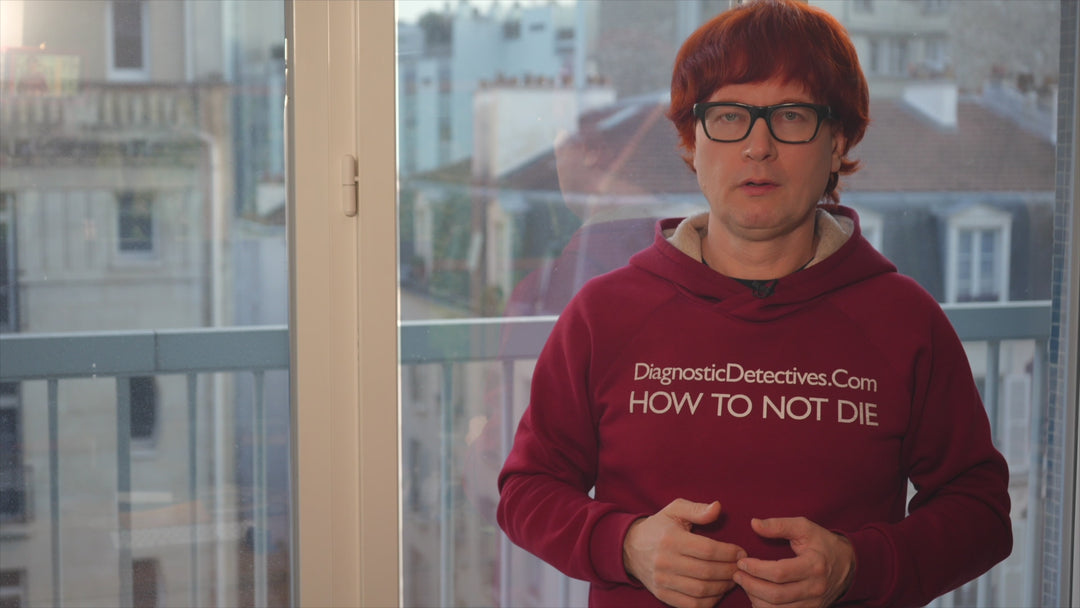Menschzentrierte Medizinische Versorgung: Wesentliche Prinzipien der Patientenbehandlung
Direktnavigation
- Klinische Methode und Emotionales Verständnis
- Philosophie der Patientenversorgung
- Behandlungsprinzipien bei älteren Patienten
- Ansatz der Medizinischen Mentorschaft
- Technologie und Menschliches Gleichgewicht
- Vollständiges Transkript
Klinische Methode und Emotionales Verständnis
Dr. Marshall Wolf betont, wie entscheidend es ist, die emotionale Verfassung von Patienten in der medizinischen Praxis zu verstehen. Er plädiert dafür, die Klinische Methode mit emotionaler Intelligenz anzuwenden. Dieser Ansatz gewährleistet eine umfassende Beurteilung, die über rein körperliche Symptome hinausgeht.
Die Klinische Methode verbindet medizinisches Fachwissen mit psychologischem Feingefühl. Ärztinnen und Ärzte müssen erkennen, wie Emotionen die Symptomdarstellung und Therapietreue beeinflussen. Dieser ganzheitliche Blick führt zu präziseren Diagnosen und besseren Behandlungsergebnissen.
Philosophie der Patientenversorgung
Dr. Paul Sugarbaker greift eine grundlegende medizinische Maxime von Dr. Francis Moore auf: Der beste Weg, einen Patienten zu versorgen, ist, sich einfach um ihn zu kümmern. Dieses Prinzip unterstreicht die essentielle menschliche Beziehung in der medizinischen Behandlung.
Patientenzentrierte Versorgung fokussiert auf individuelle Bedürfnisse und Vorlieben statt ausschließlich auf Krankheitsprozesse. Dieser Ansatz stärkt das Vertrauen und steigert die Zufriedenheit der Patienten. Er bildet das Herzstück ethischer Medizin in allen Fachbereichen.
Behandlungsprinzipien bei älteren Patienten
Dr. Ottavio Alfieri führt das Konzept der „geschickten Vernachlässigung“ in der Behandlung älterer Patienten ein. Dieses Prinzip rät dazu, bei älteren Menschen unnötige Eingriffe zu vermeiden. In geeigneten Fällen steht die Lebensqualität über aggressiven Therapien.
Geschickte Vernachlässigung erfordert ein sorgfältiges klinisches Urteil und eine gründliche Nutzen-Risiko-Abwägung. Sie verhindert Übertherapie, die bei älteren Patienten mehr schaden als nützen kann. Dieser Ansacht respektiert die Autonomie der Patienten und minimiert gleichzeitig die Risiken medizinischer Interventionen.
Ansatz der Medizinischen Mentorschaft
Dr. Philip Theodosopoulos erörtert die Bedeutung von Mentoring in der medizinischen Ausbildung. Er spricht vom „Genie in uns“, das Ärztinnen und Ärzte an Nachwuchskräfte weitergeben können. Dieses Konzept betont die Weitergabe klinischer Weisheit und Erfahrung.
Effektives medizinisches Mentoring prägt die nächste Generation im Gesundheitswesen. Es sichert den Erhalt medizinischer Exzellenz und patientenzentrierter Werte. Mentoring-Beziehungen fördern berufliches Wachstum und die Entwicklung klinischer Fähigkeiten.
Technologie und Menschliches Gleichgewicht
Medizinische Expertinnen und Experten betonen durchgängig die Balance zwischen technologischem Fortschritt und menschlicher Nähe. Dr. Anton Titov, MD, regt Diskussionen darüber an, wie dieses entscheidende Gleichgewicht in der modernen Medizin bewahrt werden kann. Technologie soll die Arzt-Patienten-Beziehung bereichern, nicht ersetzen.
Moderne Diagnosewerkzeuge und Therapien müssen den Bedürfnissen der Patienten dienen, nicht allein klinischen Entscheidungen folgen. Das menschliche Element bleibt in der wirksamen Patientenversorgung unersetzlich. Ärztliches Handeln sollte technologische Kompetenz mit einfühlsamer Kommunikation verbinden.
Vollständiges Transkript
Dr. Anton Titov, MD: „Verstehen Sie den emotionalen Zustand des Patienten und wenden Sie die Klinische Methode an.“
„Der beste Weg, einen Patienten zu versorgen, ist, sich um den Patienten zu kümmern – Dr. Francis Moore.“
„‚Geschickte Vernachlässigung‘ ist das Prinzip, das bei der Behandlung älterer Patienten zu befolgen ist.“
„Das Genie in uns ist ein Genie, das man weitergeben kann.“




